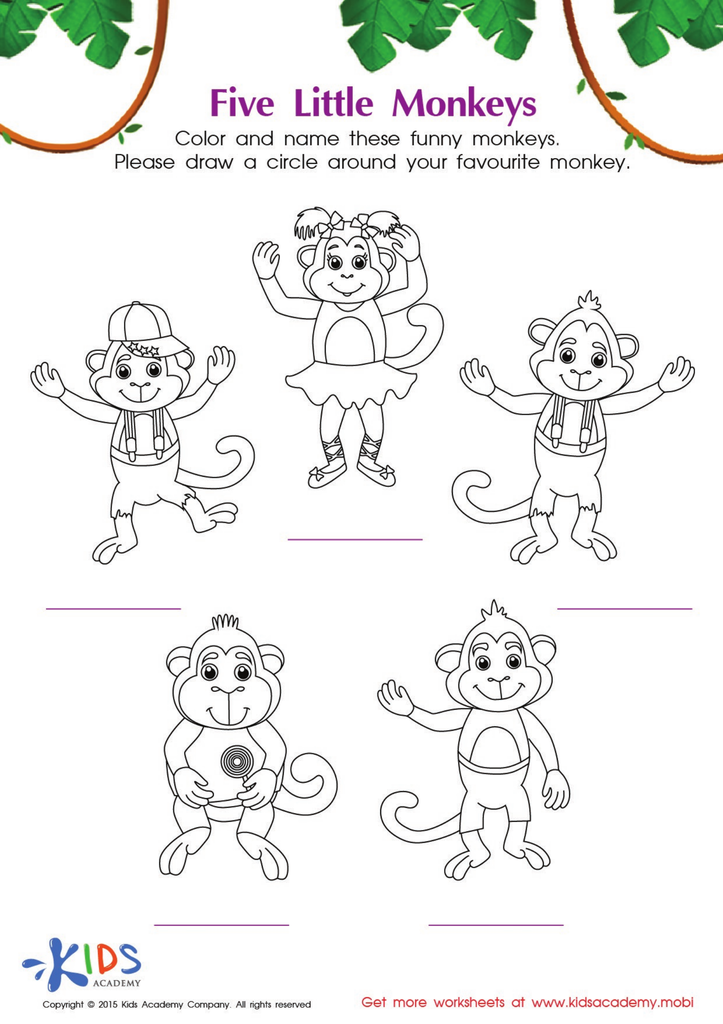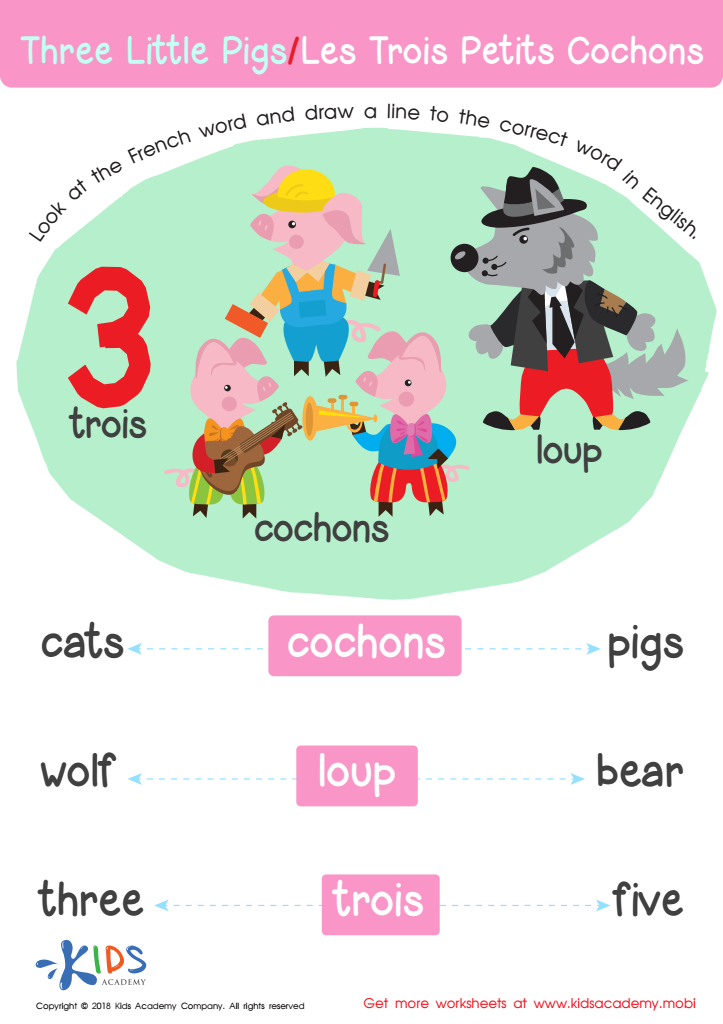Basic counting skills Reading Worksheets for Ages 3-7
4 filtered results
-
From - To
Enhance your child's early math skills with our engaging Basic Counting Skills Reading Worksheets, designed specifically for children aged 3-7. These worksheets make learning to count fun and interactive, helping young learners develop essential numeracy skills through colorful activities and playful themes. Each worksheet encourages kids to count objects, recognize numbers, and engage with visuals, fostering a solid foundation for future math success. Perfect for parents and educators, these printable resources can be easily integrated into daily learning routines, ensuring that early counting skills are taught in an enjoyable and effective manner. Start your child's counting journey today!


The Five Little Monkeys Coloring Worksheet


Three Little Pigs / Les Trois Petits Cochons Worksheet


Twinkle, Twinkle, Little Star – Coloring by Numbers
Basic counting skills are foundational to early learning and directly impact a child’s cognitive development. For children aged 3-7, acquiring counting skills fosters numeracy, enabling them to understand and engage with the world around them. These skills are the building blocks for more advanced mathematical concepts, essential for academic success and daily life.
Parents and teachers should prioritize counting skills as they enhance children's problem-solving abilities and critical thinking. Engaging in counting exercises can promote language development, as children learn to articulate numbers and quantify objects. It encourages attention to detail, improves focus, and boosts children’s confidence when tackling new challenges.
Moreover, incorporating counting into everyday activities, like counting fruits during snack time or steps while walking, makes learning fun and relatable. This approach nurtures a positive attitude towards math in early learners, easing potential anxieties related to mathematics in later years.
In essence, investing time and effort into developing counting skills sets the groundwork for lifelong learning, helps cultivate curiosity, and equips children with the tools they need to navigate their learning journey confidently. By valuing these skills, parents and teachers can significantly influence children's future academic aspirations and everyday experiences.
 Assign to My Students
Assign to My Students

















